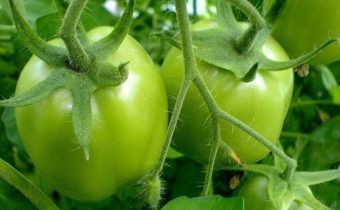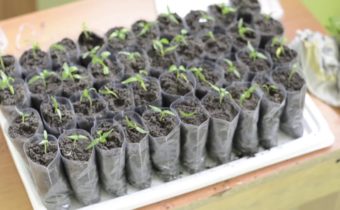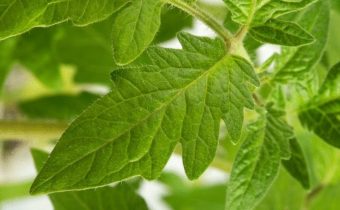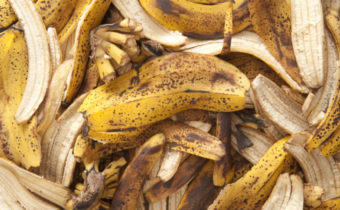Bitter salt for sweet tomatoes
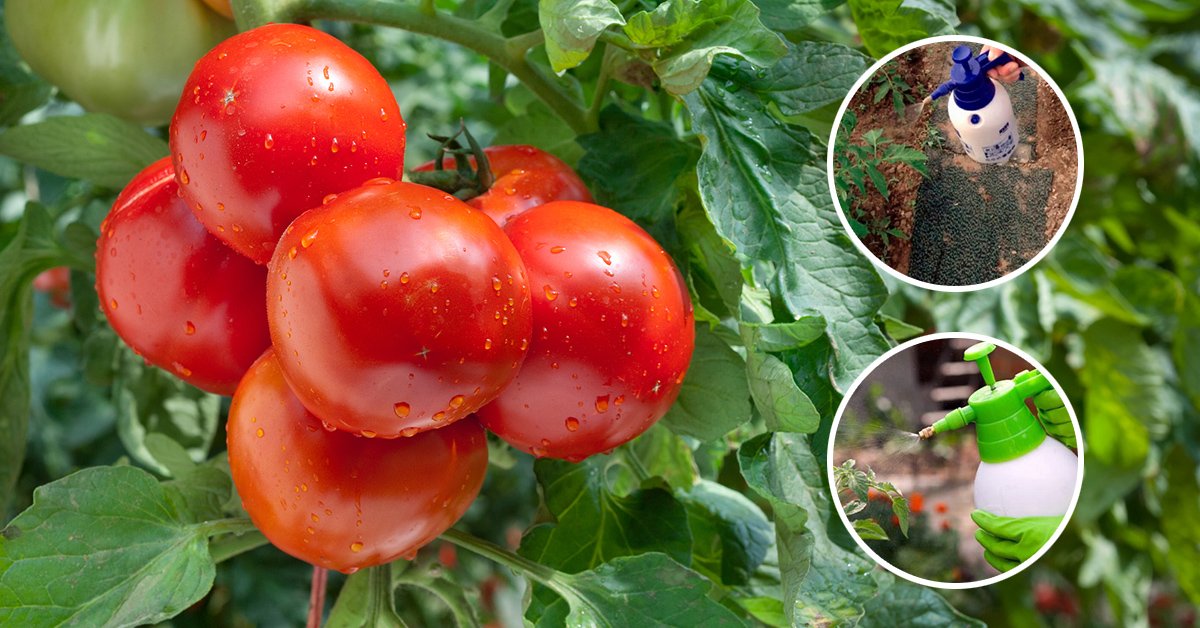
Some growers successfully use available tools to increase yields. And also for the management of pests and diseases of tomatoes. The British salt MgSO4 is increasingly used in gardens as a treater for pathogens and insect parasites. Although this is an incorrect product name, since the substance is not sodium chloride, but magnesium sulfate.
Epsom Salt Usefulness
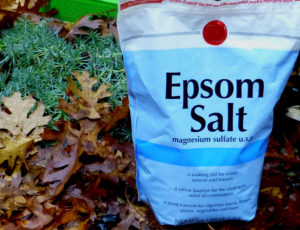
The presence of sulfur and magnesium in the product has a rejuvenating, antibacterial effect on the tissues of tomatoes. When making items on plants:
- soil and plants are saturated with vital biogenic elements;
- yellowing of the foliage is prevented, since magnesium is part of chlorophyll molecules. Plant pigment is the key substance responsible for the absorption of light during photosynthesis;
- magnesium, as a key source of energy for tomatoes, triggers plant life processes, enabling the weak root system to get moisture and nutrients from the deep layers of the soil;
- sulfur, as an integral part of plant-derived proteins of salt, is essential for the good development of tomatoes. The element increases resistance to stress, provides a better assimilation of nitrogen, increases the content of protein and sugars in fruits.
Benefits
Processing tomatoes magnesium sulfate, has advantages in the form:
- increased fruit formation in floral racemes;
- increased sugar content of ripened fruit;
- increase the yield of tomatoes;
- stimulate plant growth and increase immunity.
disadvantages
There are no minuses when using the product. The only drawback of the substance is that when it is added to tomatoes in large quantities, it becomes toxic to plants. Therefore, when feeding tomatoes with MgSO4 salt, one should strictly follow the dosages.
Recipes
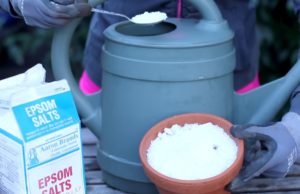
With a lack of magnesium in soils with a low pH acidity, planted tomatoes do not grow well and are distinguished by dull light green foliage. Usually such an action occurs with poor soils, in which the same crops are grown annually without observing crop rotation.
Spraying with a solution of Epsom salt should be carried out only after sunset, strictly observing the dosage. Since under the influence of sunlight, the liquid will burn the foliage.
British salt to improve the growth of tomato seedlings
The constituents of the substance help to maintain immunity. young seedlings, give a rich color to the foliage.
Cooking:
- on the surface of the ground of containers with pickled tomato seedlings decompose 10-15 pellets of English salt;
- water the plants with warm water;
- feeding should be carried out 2-3 times every 10 days.
Epsom salt with yellowing foliage of tomatoes
When yellowing foliage of tomato bushes due to lack of magnesium will help a weak solution of the product.
Cooking:
- in 10 l of water mix 2 tablespoons of the substance;
- 2-3 spraying in 10-14 days.
Epsom salt to increase the resistance of tomatoes to diseases and pests
The use of a solution from the product before planting seedlings to a permanent place will provide tomato bushes with resistance to pathogen attacks and insect parasites.
Cooking:
- in 5 l of water to dissolve 3 table dry products;
- soak the roots of seedlings of tomatoes in the solution for 30-40 minutes;
- Before planting seedlings, add 1 teaspoon of substance to each planting well.
British salt to increase the yield of tomatoes
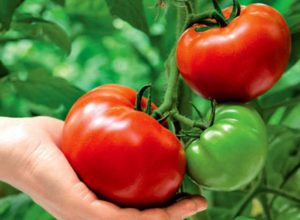
Using a solution of magnesium sulfate in their plots, growers noticed that after using it, the quality of the ovary and the taste of ripe tomatoes improved.
Cooking:
- in 5 l of warm water dilute 10 g of salt, 10 g of dish detergent;
- spraying at the time of the mass release of floral brushes of tomatoes 2 times with an interval of 6-10 days.
The product should not be used with fertilizers containing phosphorus and nitrogen. Chemical will contribute to poor dissolution of magnesium ammonium phosphate, which will cause soil depletion.
Natural English salt will help to grow a good crop of sweet tomatoes, as well as save the budget. After all, there is no need to purchase expensive complex fertilizer.


